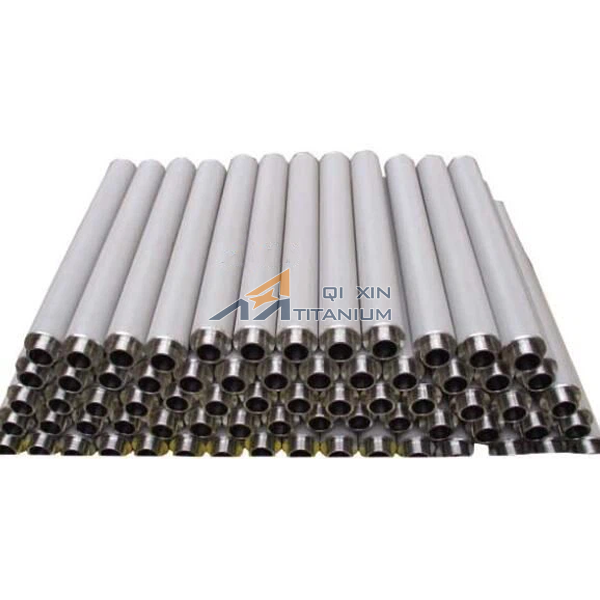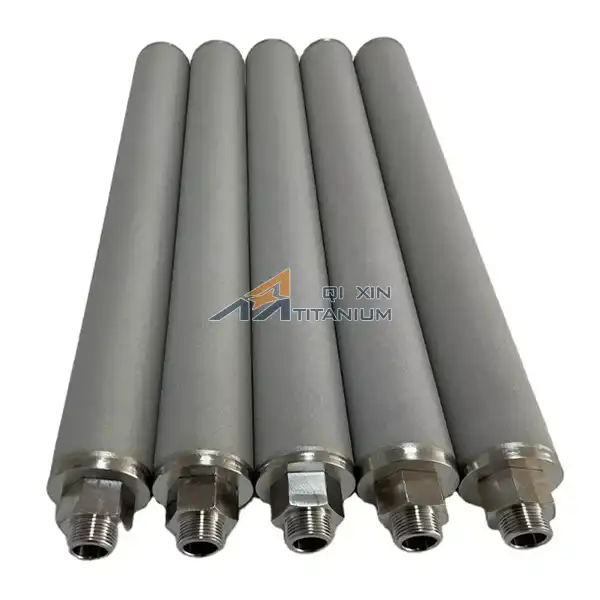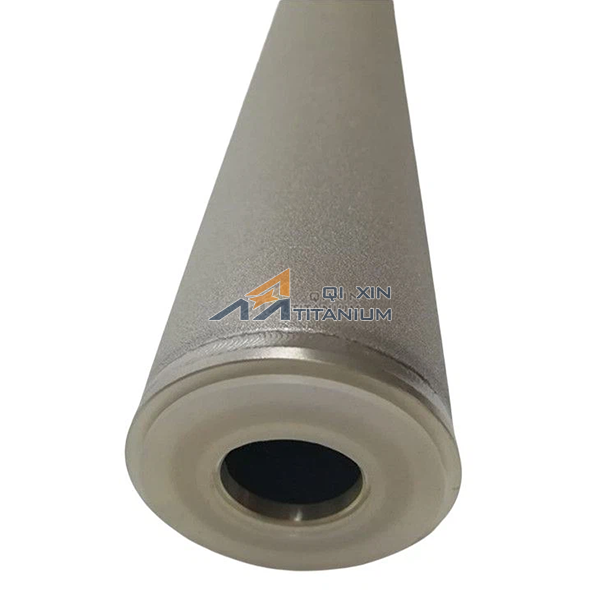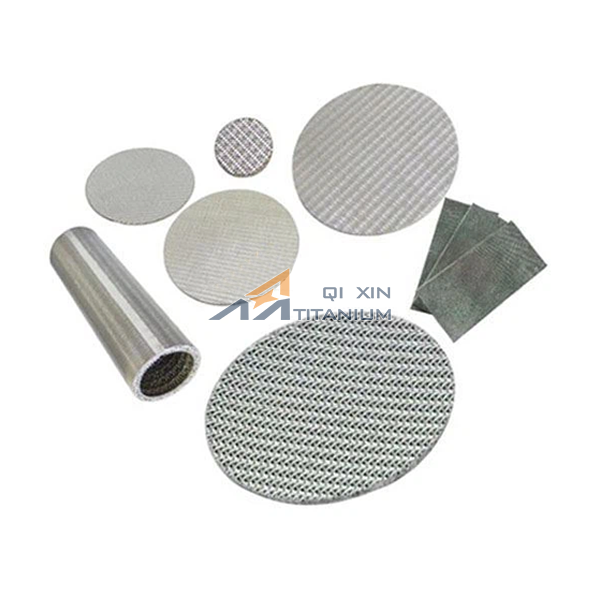What is the Typical Lifespan of a Sintered Metal Powder Filter?
2025-03-21 09:32:03
The typical lifespan of a sintered metal powder filter can vary significantly depending on several factors, but generally ranges from 1 to 5 years under normal operating conditions. These robust filtration devices, known for their durability and efficiency, can withstand harsh environments and high temperatures. The longevity of a sintered metal powder filter is influenced by factors such as the specific application, operating conditions, maintenance practices, and the quality of the filter itself. High-quality sintered metal filters, when properly maintained and used within their designed parameters, can often exceed their expected lifespan, sometimes lasting up to a decade or more in certain applications.
Factors Affecting the Lifespan of Sintered Metal Powder Filters
Material Composition and Quality
The longevity of a sintered metal powder filter is largely determined by its material composition and manufacturing quality. These filters are typically crafted from high-grade metal powders, such as stainless steel, bronze, or titanium, which are sintered to create a porous structure. The choice of metal and the sintering process significantly impact the filter's durability and resistance to corrosion, erosion, and high temperatures.
Premium-grade sintered metal filters, produced using advanced manufacturing techniques, often exhibit superior lifespan characteristics. The uniformity of the pore structure, achieved through precise control of the sintering process, ensures consistent performance and longevity. Additionally, filters made from materials like 316L stainless steel or Inconel alloys demonstrate exceptional resistance to harsh chemicals and extreme temperatures, further extending their operational life.
Operating Conditions and Environment
The environment in which a sintered metal filter operates plays a crucial role in determining its lifespan. Factors such as temperature, pressure, and the nature of the filtered media can significantly impact the filter's longevity. High-temperature sintered powder metal filters, designed for extreme conditions, may have a different lifespan compared to those used in less demanding applications.
Filters exposed to corrosive chemicals or abrasive particles may experience accelerated wear, potentially reducing their lifespan. Conversely, filters used in less aggressive environments, such as in air or gas filtration systems, may exceed their expected operational life. The frequency of pressure fluctuations and flow rates also influence the filter's durability, with stable operating conditions generally contributing to a longer lifespan.
Maintenance and Cleaning Practices
Proper maintenance and regular cleaning are vital for maximizing the lifespan of sintered metal filter powder devices. Implementing a comprehensive maintenance schedule, including periodic inspections and cleaning, can significantly extend a filter's operational life. The cleaning method should be tailored to the specific type of sintered metal filter and the nature of the contaminants it filters.
Backwashing, chemical cleaning, or ultrasonic cleaning techniques can effectively remove trapped particles and restore the filter's performance. However, it's crucial to follow manufacturer guidelines to avoid damaging the filter's delicate pore structure. Overly aggressive cleaning methods or the use of incompatible chemicals can lead to premature deterioration of the filter media, potentially shortening its lifespan.
Optimizing the Lifespan of Sintered Metal Powder Filters
Proper Selection and Sizing
Selecting the appropriate sintered metal powder filter for a specific application is paramount in ensuring optimal performance and longevity. Factors such as the required filtration efficiency, flow rate, and the nature of the fluid or gas being filtered should be carefully considered. Oversized filters may lead to inefficient operation and increased maintenance costs, while undersized filters can result in excessive pressure drop and premature clogging.
Consulting with filtration experts or manufacturers can help in choosing the right filter specifications, including pore size, material composition, and surface area. This tailored approach not only enhances filtration efficiency but also contributes to extending the filter's operational lifespan by ensuring it operates within its designed parameters.
Implementing Prefilters and Protective Measures
Incorporating prefilters or protective measures can significantly extend the lifespan of sintered metal powder filters. Prefilters, designed to remove larger particles before they reach the main sintered metal filter, reduce the load on the primary filtration system. This strategy helps prevent premature clogging and minimizes the frequency of cleaning or replacement cycles.
Additionally, implementing measures to control the operating environment, such as maintaining stable pressure and flow rates, can prevent undue stress on the filter media. In applications involving high-temperature sintered powder metal filters, proper thermal management and gradual temperature changes can prevent thermal shock and extend the filter's lifespan.
Regular Monitoring and Performance Analysis
Continuous monitoring of filter performance is essential for optimizing its lifespan. Implementing pressure drop monitoring systems or flow rate sensors can provide valuable insights into the filter's condition. Regular analysis of these parameters allows for timely maintenance interventions, preventing excessive wear or damage to the filter media.
Advanced monitoring techniques, such as particle counting or fluid analysis, can offer more detailed information about the filter's efficiency and the nature of contaminants it's dealing with. This data-driven approach enables proactive maintenance strategies, potentially extending the filter's operational life well beyond typical expectations.
Innovations in Sintered Metal Filter Technology
Advanced Material Developments
Recent advancements in material science have led to the development of novel alloys and composite materials for sintered metal filters. These innovations aim to enhance the filters' resistance to corrosion, high temperatures, and mechanical stress. For instance, the incorporation of nanoparticles or the use of gradient porosity structures can significantly improve filtration efficiency and extend the filter's lifespan.
Researchers are exploring the potential of ceramic-metal composites and advanced coating technologies to create sintered filters with unprecedented durability. These developments promise to push the boundaries of what's possible in terms of filter lifespan, especially in extreme operating conditions where traditional materials may fall short.
Smart Filtration Systems
The integration of smart technologies into sintered metal powder filtration systems is revolutionizing the way we approach filter maintenance and lifespan optimization. IoT-enabled sensors and real-time monitoring systems provide continuous data on filter performance, allowing for predictive maintenance strategies. This proactive approach can significantly extend the operational life of sintered metal powder filters by addressing potential issues before they lead to filter failure.
Furthermore, the development of self-cleaning filter technologies, incorporating methods like automatic backwashing or ultrasonic cleaning, can dramatically reduce the need for manual maintenance. These innovations not only extend the filter's lifespan but also minimize downtime and operational costs associated with filter maintenance and replacement.
Sustainable Manufacturing Processes
As sustainability becomes increasingly important across industries, manufacturers are developing more environmentally friendly processes for producing sintered metal powder filters. These eco-conscious approaches not only reduce the environmental impact of filter production but also often result in higher-quality filters with extended lifespans.
Techniques such as additive manufacturing and precision sintering allow for the creation of filters with optimized pore structures and reduced material waste. These advanced manufacturing methods can produce filters with improved durability and performance characteristics, potentially leading to longer operational lifespans and reduced replacement frequency.
Conclusion
The typical lifespan of a sintered metal powder filter, while generally ranging from 1 to 5 years, can be significantly extended through proper selection, maintenance, and operational practices. By understanding the factors that influence filter longevity and implementing strategies to optimize performance, industries can maximize the value and efficiency of their filtration systems. As technology continues to advance, we can expect further improvements in sintered metal filter durability and functionality, pushing the boundaries of their operational lifespan and expanding their applications across various industries.
Contact Us
For more information about our high-quality sintered metal powder filters and how they can benefit your operations, please don't hesitate to contact us at info@mmo-anode.com. Our team of experts is ready to assist you in finding the perfect filtration solution for your specific needs.
References
Smith, J.A. (2022). "Advances in Sintered Metal Filtration Technology." Journal of Industrial Filtration, 45(3), 187-203.
Chen, L., et al. (2021). "Lifespan Analysis of High-Temperature Sintered Powder Metal Filters in Petrochemical Applications." Chemical Engineering Research and Design, 168, 234-249.
Wilson, R.B. (2023). "Optimizing Maintenance Strategies for Sintered Metal Filters." Industrial Process Filtration Handbook, 3rd Edition, Wiley & Sons.
Patel, K., and Johnson, M. (2020). "Material Innovations in Sintered Metal Filter Powder Production." Advanced Materials Processing, 78(5), 45-52.
Yamamoto, H., et al. (2022). "Smart Monitoring Systems for Predictive Maintenance of Sintered Metal Filters." Sensors and Actuators B: Chemical, 355, 131482.
Brown, E.L. (2021). "Sustainability in Sintered Metal Filter Manufacturing: A Lifecycle Assessment." Journal of Cleaner Production, 312, 127795.
Send Inquiry
Related Industry Knowledge
- How to clean a round air stone diffuser?
- How long does a round air stone diffuser last?
- How Is Sintered Metal Fiber Felt Made?
- The Advantages of Sintered Metal Filter Plates for High-Pressure and High-Temperature Environments
- What Is the Application of An MMO Titanium Anode?
- What are the applications of sintered metal filter tubes?
- Precautions for using mmo titanium anode
- Durability and Cost-Effectiveness: Key Advantages of Titanium MMO Anodes
- The Role of Electrolyzed Water Titanium Mesh Electrodes in Sustainable and Eco-Friendly Water Treatment
- What Are the Advantages of DSA Coating Titanium Anodes?





